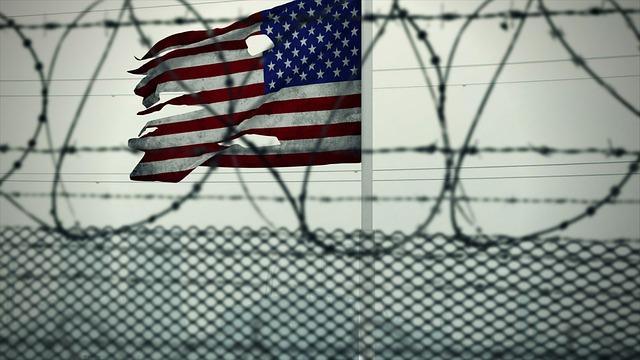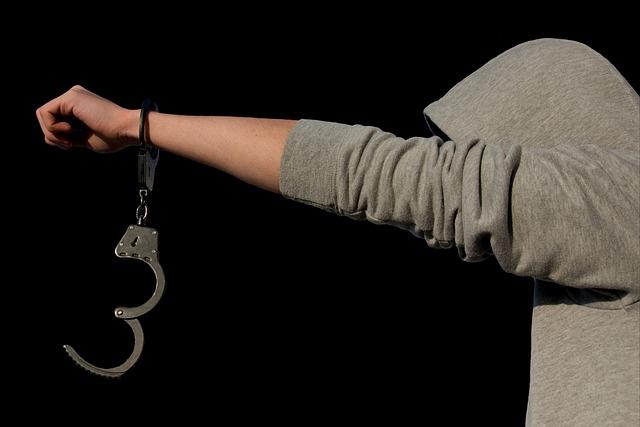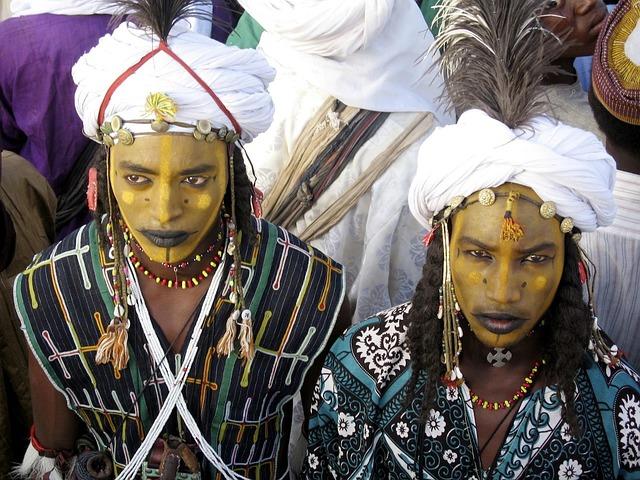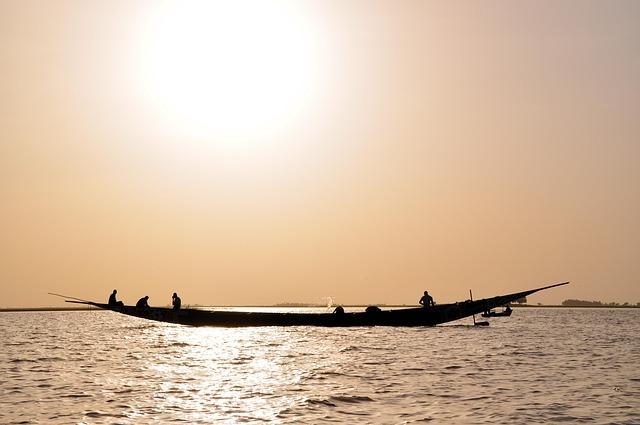In a notable development highlighting ongoing human rights concerns in Niger, the International Federation for Human Rights (FIDH) has issued a joint call for the immediate release of Moussa Tiangari, a prominent activist and advocate for civil liberties. Tiangari, who has been a vocal critic of the government’s policies and actions, was arrested amid rising tensions surrounding political freedoms in the country. This call for his release underscores a growing apprehension regarding the treatment of dissenting voices in Niger, where political repression and violations of basic rights have increasingly drawn international scrutiny. As the situation unfolds, the FIDH and various human rights organizations are rallying support to ensure that Tiangari’s case does not fade from public consciousness and that calls for justice and accountability continue to resonate within both national and global arenas.
Immediate Release of moussa Tiangari Demanded by International Human Rights Groups
International human rights organizations are amplifying their voices, demanding the immediate release of Moussa Tiangari, a prominent figure in Niger’s civil society. Tiangari, who has been held without charge since his arrest, is viewed as a vital advocate for democracy and human rights in the region. His detention has raised significant concerns about the increasing repression of civil liberties under current governance. The joint statement from various organizations underlines several critical points:
- Unlawful Detention: Tiangari’s arrest is seen as a violation of both national and international legal standards.
- Call for Clarity: Human rights groups are urging authorities to provide clear justifications for his detention.
- Support for Civil Society: The incident is emblematic of a broader crackdown on activists and dissidents in Niger.
The collective call for Tiangari’s release echoes across borders, with organizations like the International Federation for Human Rights (FIDH) and Amnesty International stressing the urgency of the situation. They contend that failure to release Tiangari could set a hazardous precedent for the treatment of those exercising their right to free speech and assembly. North African and West African human rights groups have joined forces to create a united front, showcasing the gravity of this incident. The situation necessitates immediate international attention, with actions proposed including:
- Global Awareness Campaigns: Mobilizing international advocacy efforts to highlight Tiangari’s plight.
- Petition to Authorities: Collecting signatures and calls to pressure Niger’s government.
- Monitoring and Documentation: Continuously documenting human rights violations related to this case.

Understanding the Context: Political Climate Surrounding Tiangari’s Detention
The political landscape in Niger has become increasingly tumultuous,with escalating tensions between military authorities and opposition groups. The recent detention of Moussa Tiangari, a vocal critic of the regime, exemplifies the precarious nature of dissent in the current surroundings. Factors contributing to this climate include:
- Military Governance: The power struggles following the coup have led to a militarization of politics, fostering an atmosphere of fear.
- Suppression of Free Speech: The government has ramped up efforts to stifle dissent, with crackdowns on civil society organizations and media.
- Escalating Protests: Public discontent has been met with heavy-handed police responses, further alienating the populace from the regime.
The implications of Tiangari’s detention resonate beyond national borders,highlighting Niger’s fragile democratic foundations. International observers and human rights organizations are increasingly voicing concern, urging the government to reassess its approach to governance and civil liberties. Key points of consideration include:
- Global Outcry: Human rights advocates are calling for urgent intervention from international bodies, pressuring the Nigerien government to uphold civic freedoms.
- Impact on Regional Stability: The handling of this crisis may set a precedent for other countries in the region grappling with similar governance issues.
- Future of Democratic Movements: The fate of Tiangari could influence the resilience of pro-democracy movements across Niger and West Africa.

Legal Implications of Tiangari’s Arrest Under Nigerien Law
The recent arrest of Moussa Tiangari has raised significant concerns regarding the adherence to legal protocols under Nigerien law. According to the Constitution of Niger, every individual is entitled to basic rights, including the right to a fair trial and legal portrayal. However, the circumstances surrounding Tiangari’s detention appear to contravene these rights, as there have been reports of arbitrary detainment without substantial evidence or due process.Legal experts are spotlighting several potential violations, especially regarding freedom of expression and the right to assemble, wich are protected under both national and international law.
Moreover,the implications of tiangari‚Äôs case extend beyond individual rights,perhaps undermining Niger’s commitment to democratic values and the rule of law. A thorough understanding of the legal framework reveals the necessity for transparency and accountability in the justice system. Observers have noted the following aspects of concern:
- Due Process Violations: Lack of timely access to legal counsel and the absence of formal charges.
- Political Motivation: Speculation that his arrest is rooted in dissent against governmental policies.
- International Obligations: Niger’s commitments to various human rights treaties that emphasize the protection of civil liberties.

Call to Action: Mobilizing Support for Human Rights in Niger
In light of the alarming situation surrounding Moussa Tiangari’s detention,it is imperative that we unite our voices and take action. Mobilizing support for human rights requires not only awareness but also active participation. Here‚Äôs how you can contribute:
- Sign Petitions: Join local and international petitions demanding the immediate and unconditional release of moussa Tiangari.
- Raise Awareness: Share facts on social media platforms about his case and the broader issues of human rights violations in Niger.
- Contact your Representatives: Reach out to government officials urging them to address this situation and pressure the Nigerien authorities.
- Support NGOs: Contribute to organizations working on human rights in Niger to help facilitate advocacy efforts.
Additionally, displaying solidarity with Nigerien citizens can create a powerful movement. Below is a quick overview of the current human rights landscape in Niger to inform your discussions:
| Key Issues | Current status |
|---|---|
| political Repression | Widespread |
| Freedom of speech | Under Threat |
| Detention without Trial | Increased Incidents |
| Urgent Cases | Moussa tiangari |

Recommendations for International Bodies to Address Human rights Violations
Considering the ongoing human rights violations in Niger, it is indeed imperative for international organizations to adopt a more proactive stance. they should prioritize the following measures to safeguard fundamental freedoms and ensure accountability for abuses:
- Condemnation of Violations: Publicly denounce instances of human rights abuses, ensuring that statements are clear and unequivocal.
- Support for Civil Society: Enhance assistance to local NGOs and human rights defenders, empowering them to document abuses and advocate for change.
- Targeted sanctions: Implement sanctions against individuals or entities directly implicated in human rights violations, showcasing a commitment to accountability.
- Monitoring Missions: Deploy autonomous monitoring teams to assess the human rights situation on the ground, providing unbiased reports to the international community.
Moreover, international bodies must collaborate with regional organizations to strengthen mechanisms for human rights protection. By fostering partnerships,they can enhance effectiveness through shared resources and expertise. Suggested collaborative actions include:
| Action | Description |
|---|---|
| joint Investigations | Conduct thorough inquiries into human rights abuses, ensuring comprehensive data collection. |
| Training Programs | Develop training for law enforcement and judiciary on human rights standards. |
| Public Awareness Campaigns | Launch initiatives to educate citizens about their rights and the available recourse against violations. |

The Role of Civil Society in Advocating for Democracy in Niger
The current situation in Niger underscores the vital role that civil society plays in advocating for democratic principles and human rights. Organizations like the International Federation for Human Rights (FIDH) exemplify this advocacy by mobilizing grassroots support and amplifying the voices of those who are often silenced.they work tirelessly to bring attention to cases of unjust detention, such as that of Moussa Tiangari, and to shine a light on the challenges faced by activists and ordinary citizens alike.The coordinated efforts of civil society not only foster a culture of accountability but also remind both national and international actors of the indispensable nature of civic engagement in maintaining democracy.
Civil society organizations serve multiple functions in the promotion of democratic governance. By providing platforms for community engagement, raising awareness on human rights violations, and engaging in dialog with government officials, these groups empower citizens to advocate for their rights and effectively challenge oppressive regimes. Key activities include:
- Mobilizing Public Awareness: campaigns to inform citizens about their rights and the importance of democracy.
- Monitoring and Reporting: Regular monitoring of political situations and publicizing findings to maintain pressure on authorities.
- Legal Support: Providing assistance to individuals facing legal challenges due to their political activism.
- Advocacy with International Bodies: Engaging with the UN and other international entities to gain support for democratic reforms.
Concluding Remarks
the urgent appeal for the immediate release of Moussa Tiangari highlights the pressing need for accountability and respect for human rights in Niger. The joint statement by the International Federation for Human Rights (FIDH) and various civil society organizations underscores the alarming trend of arbitrary detentions that threaten the fundamental freedoms of individuals in the country. As the situation unfolds, it is imperative that the international community maintains its focus on Niger, advocating for the protection of human rights and supporting efforts to uphold justice. The release of Moussa Tiangari woudl not only be a crucial step towards restoring faith in the legal system but also a reaffirmation of the universal principles of freedom and dignity for all. The eyes of the world remain on Niger as it navigates these crucial challenges, urging a swift resolution that upholds the rights of every citizen.







